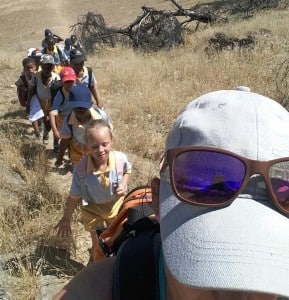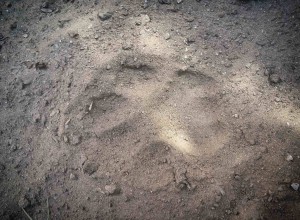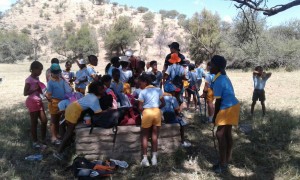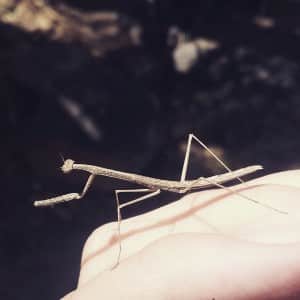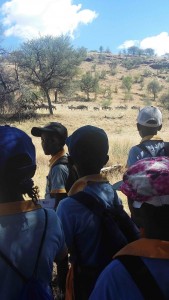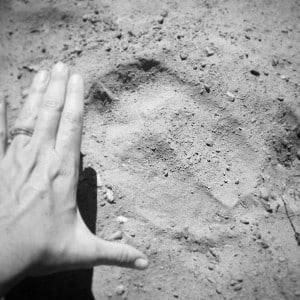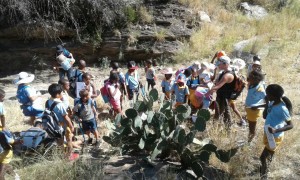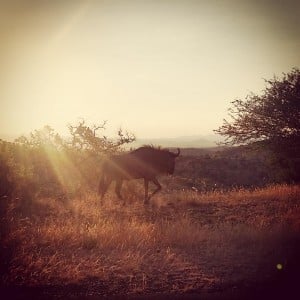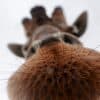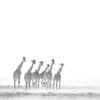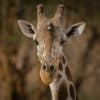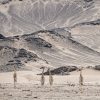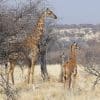 After months of programme development, preparation and trial runs the Khomas Environmental Education Programme (KEEP) is finally up and running: the first ‘official’ group of a total of 160 kids enjoyed a morning of bushveld fun. Suiderhof Primary School from Windhoek was the first school to send their four grade 3 classes with around 40 kids each for a day of hands-on environmental learning.
After months of programme development, preparation and trial runs the Khomas Environmental Education Programme (KEEP) is finally up and running: the first ‘official’ group of a total of 160 kids enjoyed a morning of bushveld fun. Suiderhof Primary School from Windhoek was the first school to send their four grade 3 classes with around 40 kids each for a day of hands-on environmental learning.
For four days, Daan Viljoen Game Reserve was turned into an outdoor classroom. The fun-filled morning started off with a tracking and animal identification session. The kids detected spoors (tracks) from kudu to warthog, oryx to zebra and even a few giraffe. A few kids were even convinced that they had found elephant and lion spoor, luckily not – but the fresh leopard tracks caused a lot of excitement.
“I liked the tracking of the animals!”
The 3.5km hike takes the young eco heroes on a mini adventure through tall grass and over weathered rock where they learn that everything, big and small, living and non-living, is important and has a place in the ecosystem. Yes, even grasshoppers and corn crickets (which seem to get the most screams). Did you know, nature recycles?! From burrows, to dead grass for nests! What about being water wise?! Giraffe obtain almost all of their water needs through their food! There are so many lessons we can learn if we take the time to get to know the creatures around us! And that’s what KEEP is all about!
“My favourite part was when the wildebeest came down the mountain.”
Provided we all used our ‘bushveld voices’ (including the teachers!) the students got to see the wonderful variety of animals that live in the reserve, from big wildebeest herds running across the path and baboons keeping a watchful eye from tree tops, to a zebra herd snorting in alarm from the mountain side, and a few giraffe in the far distance. A first for many of the kids.
On their way we discussed important and very relevant topics such as litter, waste, pollution and last but definitely not least, water. Identified as Namibia’s biggest environmental problem, ideas on how to save water were explored.
The students quickly got the hang of the idea that we are all connected and that all living things have the same basic needs to survive (even us humans). Later we found a large tree for shade and the kids built an ‘eco pyramid’ which showed what happens when we over-use, waste and pollute. In a nutshell, as one child put it:
“If we cut down all our trees and don’t plant any more, animals won’t have food to eat and humans won’t have any more oxygen.”
Did you know that it takes about 1 second to say hello to 1 person (go ahead check, say hello), and if you were to say hello to every person on the planet (just over 7 billion) it would take you 222 years! The students all agreed 7 billion people is a lot of people. They also agreed that if all living things need to share and if there is going to be enough to go around then something needs to change! This is a huge concept for kids to grasp but using nature as the teacher they better understood their role in making that change. A proud moment for the facilitators and a proud moment for KEEP.
Of course, no ‘class’ is complete without homework and the students (and teachers) were asked to go away with all their new skills and think about how they could take action and make a difference in their school, homes, communities and country.
So, why do we do this? Why does KEEP even exist? Because conservation can only happen when we connect with our environment. KEEP provides that opportunity which otherwise might not exist for many of the Namibia’s children.
Our aim is to inspire kids to care with the understanding that we are all connected. What we do to nature, we do to ourselves.
“My favourite part was everything!”
A big thank you goes to the students and teachers of Suiderhof Primary School, for not only being inspiring and energetic but also for their contribution towards KEEP helping to ensure we can continue to bring environmental education to the students of the Khomas Region.
Thank you also for the generous support from the Ministry of Environment and Tourism, Auckland Zoo, Blank Park Zoo, Columbus Zoo, GEF SGP Namibia, Grant Thornton Neuhaus, Hollard, Leiden Conservation Foundation, NaDEET, NEEN, Omaruru Beverages, Pupkewitz Foundation, Sun Karoos, Typoprint, and Woodland Park Zoo.


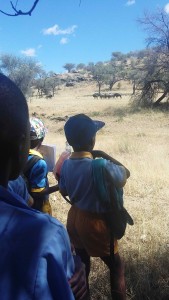 After months of programme development, preparation and trial runs the
After months of programme development, preparation and trial runs the 